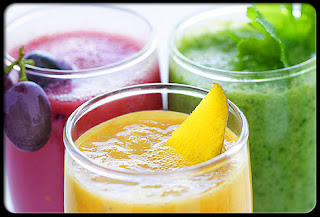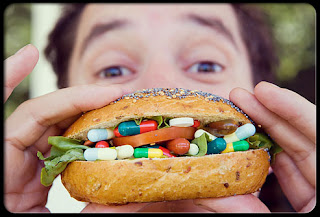
Listen to the buzz about foods and dietary supplements and you'll believe they can do everything from sharpen focus and concentration, to enhance memory, attention span, and brain function. But do they really work? There's no denying that as we age chronologically, our body ages right along with us. The good news? You can increase your chances of maintaining a healthy brain -- if you add "smart" foods and beverages to your diet.
 Caffeine
Caffeine Can Make You More Alert
There's no magic bullet to boost IQ or make you smarter -- but certain substances, like caffeine, can energize and help you focus and concentrate. Found in coffee, chocolate, energy drinks, and some medications, caffeine gives you that unmistakable wake-up buzz -- though the effects are short term. And more is often less:
Overdo it on caffeine and it can make you jittery and uncomfortable.  Sugar
Sugar Can Enhance Alertness
Sugar is your brain's preferred fuel source -- not table sugar, but glucose, which your body metabolizes from the sugars and carbohydrates you eat. That's why a glass of something sweet to drink can offer a short-term boost to memory, thinking processes, and mental ability. Consume too much, however, and memory can be impaired -- along with the rest of you.
Go easy on the sugar so it can enhance memory, without packing on pounds.
 Protein
Protein & Brain Function Connection?
One of the great benefits of protein is that it generally makes you feel satisfied longer than carbohydrates and fats. Eating a diet rich in lean and low-fat protein is good for weight loss and overall health -- though it's hard to draw a connection with brain function.
 Fish
Fish Really is Brain Food
A protein source associated with a great brain boost is fish -- rich in omega 3 fatty acids, essential for brain function and development. These healthy fats have amazing brain power: higher dietary omega 3 fatty acids are linked to lower dementia and stroke risks; slower mental decline; and may play a vital role in enhancing memory, especially as we get older. For brain and heart health, eat two servings of fish weekly.

Add a Daily Dose of Nuts, Chocolate
Nuts and seeds are good sources of the
antioxidant vitamin E, which is associated with less cognitive decline as you age. Dark chocolate also has powerful antioxidant properties, and contains natural stimulants like caffeine, which can enhance focus and concentration. Enjoy up to an ounce a day of nuts and dark chocolate to provide all the benefits you need without
excess calories, fat, or sugar.

Add Avocados and Whole Grains
Every organ in the body depends on blood flow, especially the heart and brain. Eating whole grains and fruits like avocados can reduce the risk of cardiovascular disease and enhance blood flow, offering a simple, tasty way to fire up brain cells. Whole grains, like popcorn and whole wheat, also contribute
dietary fiber and vitamin E, while avocados have fat -- but a good-for-you,
monounsaturated fat that contributes to healthy blood flow.
 Blueberries
Blueberries Are Super Nutritious
Research in animals shows that blueberries help protect the brain from oxidative stress and may reduce the effects of age-related conditions such as Alzheimer's disease or dementia. Studies also show that diets rich in blueberries significantly improved both the learning capacity and motor skills of aging rats, making them mentally equivalent to much younger rats.
 Benefits of a Healthy Diet
Benefits of a Healthy DietIt may sound trite but it's true: If your diet lacks essential nutrients, it can decrease your ability to concentrate. Eating too much or too little can also interfere with your ability to focus. A heavy meal may make you feel lethargic, while too few calories can result in distracting hunger pangs. Benefit your brain: Strive for a well-balanced diet chock full of a wide variety of healthy, wholesome foods.

Vitamins, Minerals, Supplements?
Store shelves groan with supplements claiming to boost health. Although many of the reports on the brain-boosting power of supplements like
vitamins B, C, E, beta-carotene, and magnesium are promising, they're inconclusive. Researchers are cautiously optimistic about ginseng, gingko, or vitamin, mineral, and herb combinations and their impact on the brain. A daily multivitamin is OK, but check with your doctor before taking other supplements.

Want to power up your ability to concentrate? Start with a meal of 100% fruit juice, a whole grain bagel with salmon, and a cup of coffee. In addition to eating a well-balanced meal, experts also advise:
Get a good night's sleep.
Exercise to help sharpen thinking.
Meditate to clear thinking and relax.
Aren't there simply
too much to digest?
Too much to think of what to eat.
Too many benefits, too full to consume them all?

What about this? It takes 2 minutes to prepare, contains all the good nutrition in just a cup which only cost S$3.50.
So you don't have to think
too much of what to eat to get the focus and concentration required.
Don't have to waste
too much time preparing the tables of food.
Don't have to spent
too much buying all the foods that contains the nutrition that this single cup provides.
Don't have to eat
too much food including the excess of carbohydrates and fats.
That makes you
TOO fat.


 Skipping breakfast
Skipping breakfast









 Look around any pub and you'll see a familiar sight — they're big, gorgeous and all their own work ... beer bellies!
Look around any pub and you'll see a familiar sight — they're big, gorgeous and all their own work ... beer bellies!




 (the 4th benefit) all together it's less than 200 calories!
(the 4th benefit) all together it's less than 200 calories!
 Listen to the buzz about foods and dietary supplements and you'll believe they can do everything from sharpen focus and concentration, to enhance memory, attention span, and brain function. But do they really work? There's no denying that as we age chronologically, our body ages right along with us. The good news? You can increase your chances of maintaining a healthy brain -- if you add "smart" foods and beverages to your diet.
Listen to the buzz about foods and dietary supplements and you'll believe they can do everything from sharpen focus and concentration, to enhance memory, attention span, and brain function. But do they really work? There's no denying that as we age chronologically, our body ages right along with us. The good news? You can increase your chances of maintaining a healthy brain -- if you add "smart" foods and beverages to your diet.
























